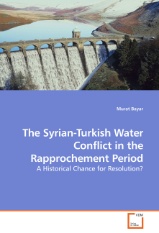BOOKS OF OUR ALUMNI

Muslims in Europe: The European Union Solving Social Conflicts - Alexandru Balaş 2006 Spring Alumni
European Union’s conflict transformation approaches are best-known in the framework of the Europeanization process of Central and Eastern Europe. Little is known about the European Union’s 3rd party structural transformation intervention into the social conflicts taking place inside the European Union.
Many Member-States of the European Union experienced over the span8 decade an increase in the social conflict involving Muslim communities. The E.U.’s bodies and institutions are the most suited to address such a European-wide conflict. As a 3rd party, the European Union uses a structural transformation approach to address this conflict, through legislation and policies aimed at changing the structures of the Member-States. However, the 3rd party intervention of the European Union depends on the capacity of the Member State’s political structures to adopt the requested legislation and policies which address the conflict.
The research question is: Do political opportunity structures impact the process of 3rd party intervention in the context of the European Union? Political opportunity structures refer to institutional arrangements (centralized vs. decentralized) which allow for an easier or more difficult filtration of 3rd party intervention mechanisms coming from above the state level. Political culture is also taken into account in relationship to the institutional arrangements. The process of 3rd party intervention has two phases: transposition of EU legislation to national level and implementation of the EU legislation.
The research methods used were comparative case studies (France and Spain) and secondary data analysis. The conclusion is that political structures impact the process of 3rd party intervention at the level of transposition and implementation of EU legislation but not as strong as expected. Thus, the European Union conflict resolution actions regarding conflicts with the Muslim communities in Europe are modified to a certain degree by how centralized or federalized the EU state in question is.

The Syrian-Turkish Water Conflict in the Rapproachment Period: A Historical Chance for Revolution? - Murat Bayar 2006 Spring Alumni
This study investigates the potential for a resolution of the Syrian-Turkish water conflict in the rapprochement period. The Syrian-Turkish Water Events Database has indicated that Turkey, the upper riparian state on the Euphrates River, still favors the status-quo, whereas Syria has entered a stalemate and signaled significant optimism for a resolution. This study suggests that Turkey discounts the future for the status-quo, although it is unsustainable in the upcoming decades for two major reasons. First, as a candidate country, Turkey is obliged to adopt the European Union water frameworks that favor the Syrian (and Iraqi) demands. Second, the emergence of an autonomous Kurdish state in northern Iraq is likely to destabilize Turkey’s GAP region. In this context, Turkey has a historical chance to win an ally in Syria while her bargaining power is still at its maximum. Their cooperation also promises better utilization of scarce resources for agricultural and industrial development in the region. Thus, this book targets those who want to understand the political, socioeconomic, military, and environmental aspects of world’s one of the most protracted water conflicts.